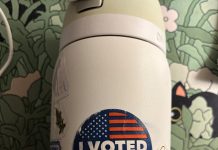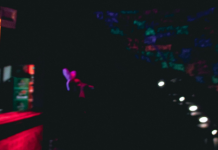Danielle Dankner
Staff Writer
Since its inception, University of California, Santa Barbara has gained the reputation of being a wild party school where, within the one square mile of Isla Vista, students polish off copious amounts of alcohol while crammed into ocean-front houses with the rest of the student body population. It is no wonder the school has inherited the idiom “U Can Study Buzzed.” In 2010, both Playboy Magazine and the Huffington Post named UCSB the number eight party school in the nation, and the Princeton Review named it the number one party school in California.
However, for the first time ever, a major annual survey provided statistics that indicate a growing trend among college freshmen toward more focus on future job prospects and less emphasis on drinking.
The “2012 Freshman Norms report,” administered by University of California, Los Angeles’ Cooperative Institutional Research Program (CIRP), revealed that while 73.7 percent of college freshmen were reported consuming alcoholic beverages in 1982, the number dropped significantly to 35.4 percent in 2011, and only 33 percent of first-year students were reported drinking in 2012.
The aforementioned survey contains data gathered from 192,912 first-year, full-time students from across 283 different four-year universities throughout the United States. Along with freshmen drinking hitting a record low, the research displayed an all-time high of 87.9 percent of first-year students claiming that they were attending college in order to better their future job prospects. As opposed to the 79.6 percent of students in 2011 who stated that being financially stable was a crucial personal aspiration, the number increased to 81 percent in 2012.
Respondents of the CIRP survey also maintained that choosing where they would go to college was significantly influenced by the current state of the U.S. economy. Many first-year college students said they were unable to afford their first choice schools.
According to Sylvia Hurtado, director of the Higher Education Research Institute (HERI) at UCLA’s Graduate School of Education and Information Studies, “students have figured out that increased lifetime earnings result from a college education.”
This current trend has also been influencing students in high school. The survey noted that only 13.7 percent of college freshmen said that they spent six or more hours partying per week when they were seniors in high school as opposed to the 63 percent of high school seniors that said they did when asked in 1987.
Related to these findings is the discovery that only one in every two post-graduates enter the workforce as either underemployed or not employed at all. With an increased anxiety about future financial security, students find themselves putting aside their drinking habits in order to secure a brighter future.
According to the UCSB Alcohol and Drug Program, “about 20 percent of UCSB students report abstaining from substance use.” While alcohol is seen to be the drug of choice, roughly half of UCSB students either don’t drink or choose to drink in moderation if they drink at all.
The question that remains, however, is whether or not this is really a growing trend. Is it truly the case that college students are drinking less than they were before, or are they better liars on surveys nowadays? Also, while drinking levels may be decreasing, is other substance abuse increasing? Is the use of other drugs becoming more prevalent?











